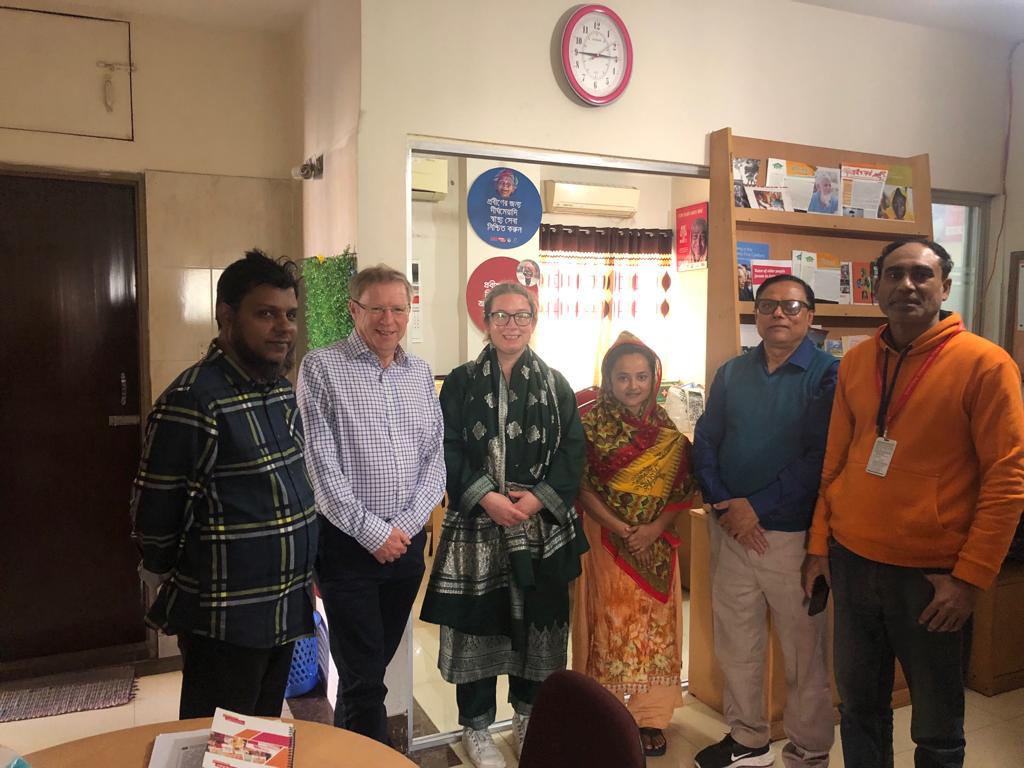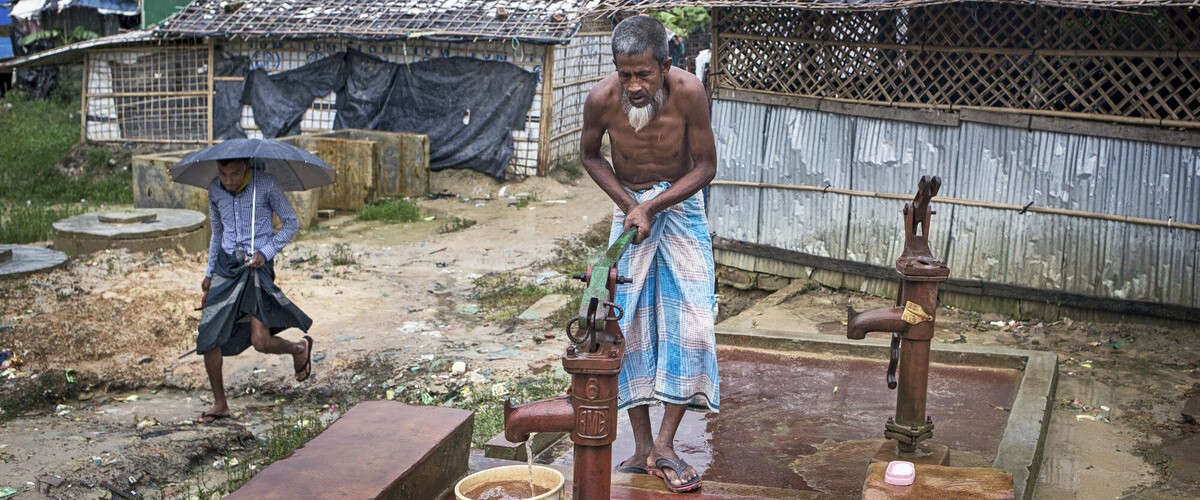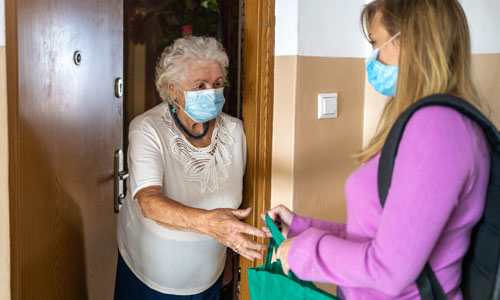Recently, I had the opportunity to see Age UK’s sister charity Age International and its partners at work.
I visited the world’s largest refugee camp, Cox’s Bazar in Bangladesh, which is home to almost a million refugees who have fled ethnic and religious persecution in Myanmar.
On first sight, it doesn’t seem much. A few dwellings between the road and the hill, each with tarpaulin over them. But it hits you when you look up and see an endless sight of thousands of such homes, clinging onto a series of hills as far as the eye can see.

The displaced Rohingya people
This is the forgotten humanitarian crisis of the Rohingya people. Nearly one million people, and rising, live in this camp. It is just a few short miles from the place where they used to live across the border in Myanmar. But now they are in Bangladesh, in a no man’s land with the official status of ‘displaced people’.
Bangladesh hosts close to one million Rohingya refugees from Myanmar, making it one of the largest protracted refugee situations in the world (a protracted refugee situation is a situation in which refugees have lived in exile for five years or more). The refugee population in Cox’s Bazar is more than 900,000. Around 50,000 of these are older people who have left their homes, having experienced unimaginable trauma and the loss of loved ones. It’s likely they will spend the rest of their lives in these camps.

Around 50,000 of these are older people who have left their homes, having experienced unimaginable trauma and the death of loved ones.
'Age Friendly' spaces
Age International, along with our global partner HelpAge International – and local partners Resource Integration Centre (RIC) and Young Power in Social Action (YPSA) – have been supporting these older people with ‘Age Friendly’ spaces in many of the camps. I was lucky enough to visit the spaces in camps 13 and 15. There, I met many older people who told me about their experiences. They are remarkably resilient and pragmatic, but the impact of the last few years is clear, especially in the older women, many of whom struggle to walk.
The older residents of the camps come to these ‘Age Friendly’ spaces from the cramped homes they share with their families. These spaces provide sanctuary and calm, as well as education on health and other matters. They also provide the opportunity to meet other older people and reminisce about life in Myanmar. One older man burst into tears as he told me that he did not expect to see his motherland again in his lifetime, and that it filled him with grief and sadness.

One older man burst into tears as he told me that he did not expect to see his motherland again in his lifetime.
Ensuring this crisis doesn’t disappear from view
A few years ago, this crisis was high on the agenda. A Disasters Emergency Committee (DEC) appeal raised millions of pounds for the emergency response. On this trip, we met many humanitarian workers doing amazing jobs. But that appeal was more than six years ago, and institutional funders face many other global challenges. Funding is declining, and sadly it’s often older people who suffer the most as a result. And now these ‘Age Friendly’ spaces are under threat.
We must ensure that this crisis does not disappear from public view. These are people who need our support. Please find out more about the work of Age International and, if you can, please donate to strengthen its efforts for older people globally.
Age International's vital work
Age International responds to the needs and promotes the rights of older people, focusing on those facing challenging situations around the world – including those affected by humanitarian crises like those in Cox’s Bazar.
You can donate to Age International’s vital work with older people by:
- Visiting the Age International website
- Calling Age International on 0800 032 0699
Photos: Faheba Monir / Age International


